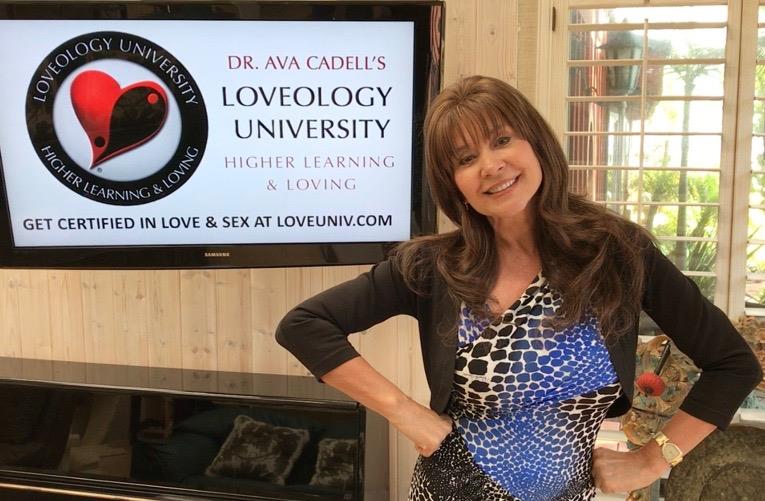Did you know that Coaching is the fastest-growing career since Covid? More than ever, people want to find love and couples need help to maintain intimacy, so here’a a Love Coaching session video with Tamara Bell, LU’s student ambassador and mentor where I coach her through a real issue in her life.
For a Love Coach to build rapport with their clients, they must first familiarize themselves with Left and Right Brain communication styles, and utilize coaching tools that correspond. For example, if a client is predominantly right brained, they’re more likely to talk about their feelings and focus on holistic approaches to resolving their problems. Guided Imagery is a useful tool for right-brained people, helping them to visualize their goals more clearly. Write a script that beautifully describes the attainment of their desires, whether it’s a new partner or an increased sex drive, and have them relax and listen to the creative visualization, enabling them through the power of suggestion.
Another successful technique is my Passion Wheel, a pie chart drawing with twelve slices that clients fill in with activities they’d like to do with their partner. They can write ‘hugging,’ ‘kissing,’ ‘undressing,’ or ‘bubble bath,’ then the key is to pick an item daily to maintain passion. One of the simplest ways couples can boost intimacy is by listening to music with their partner, a valuable tool for a right-brainer.
With left brained clients, the Love Coach can build rapport more easily by sticking to facts and logic with techniques like my Satisfaction Scale, where they can rate how happy they are from one to ten in terms of their self-image, their relationship and sex life. Left-brained people like to measure and quantify, so this exercise speaks to their strengths. In my experience, most clients respond with an average of five or lower for each category, so as Love Coach, ask them what it would take for them to reach a ten. Left-brainers are also impressed by science, so I find that explaining how brain ‘chemical cocktails’ work with passion, love and sex helps to make a compelling case for Mindful Intimacy exercises like hugging or eye-gazing (because they release Oxytocin the “love chemical,” providing immediately noticeable results) or kissing which has been shown to reduce blood pressure, zap headaches, quell anxiety and release feel good hormones like Dopamine, Norepinephrine, Testosterone and Oxytocin. This particular brain chemical mix can increase a diminished sex drive, so my prescription for couples who want to get that loving feeling back is to kiss passionately, at least twice a day!
There are also Love Coaching techniques that appeal to both right and left brained clients simply because they are so much fun, such as touching one side of a person’s body to stimulate the other side of their brain. In fact, the power of face-to-face, voice-to-voice or skin-to-skin exercises creates a bridge between two brains, triggering Mirror Neurons as the couple watch and copy each other to feel each other’s sensations, movements and emotions.
Many clients seek Love Coaching only when they are in crisis, and one of the most common reasons is that a personal boundary has been violated. But all too often that boundary was not communicated to their partner, so it’s important to help these clients empower themselves by identifying their physical, emotional and sexual boundaries, and making sure they know how to communicate them. I have an exercise that I call the Boundary Box where I suggest clients write down all their boundaries on separate pieces of paper and fill the box with them. Then they read them to me and we discuss whether they are limitations or deal-breakers, so they can mutually decide whether it’s something to be explored, or not. Some boundaries can be pushed in a healthy way! Being able to identify and articulate your boundaries gives you self-value and respect, and it can be a powerful form of communication between couples that can result in a deeper level of intimacy.
People often ask me what the most powerful Love Coaching technique is, and the answer is helping people to forgive, even if it’s just forgiving themselves. Forgiveness alters the brain’s wiring to build new neurons and let old harmful patterns go. It’s powerful to remember that at the end of one’s life, most people will say one of three things: “I’m sorry,” “I forgive you,” or “I love you.” Forgiveness is part of the meaning of life because without forgiveness there can be no love! After all, we are all going to continue to make mistakes, but without mistakes there can be no forgiveness and without forgiveness there can be no love.
I hope that you will want to empower yourself and others by becoming a Certified Love Coach. Check out the 300 hour plus curriculum, which is accredited by the American Association of Sexuality Educators, Counselors and Therapists, as well as the American College of Sexologists.
Enroll Now: https://www.loveuniv.com/certified-love-coach
